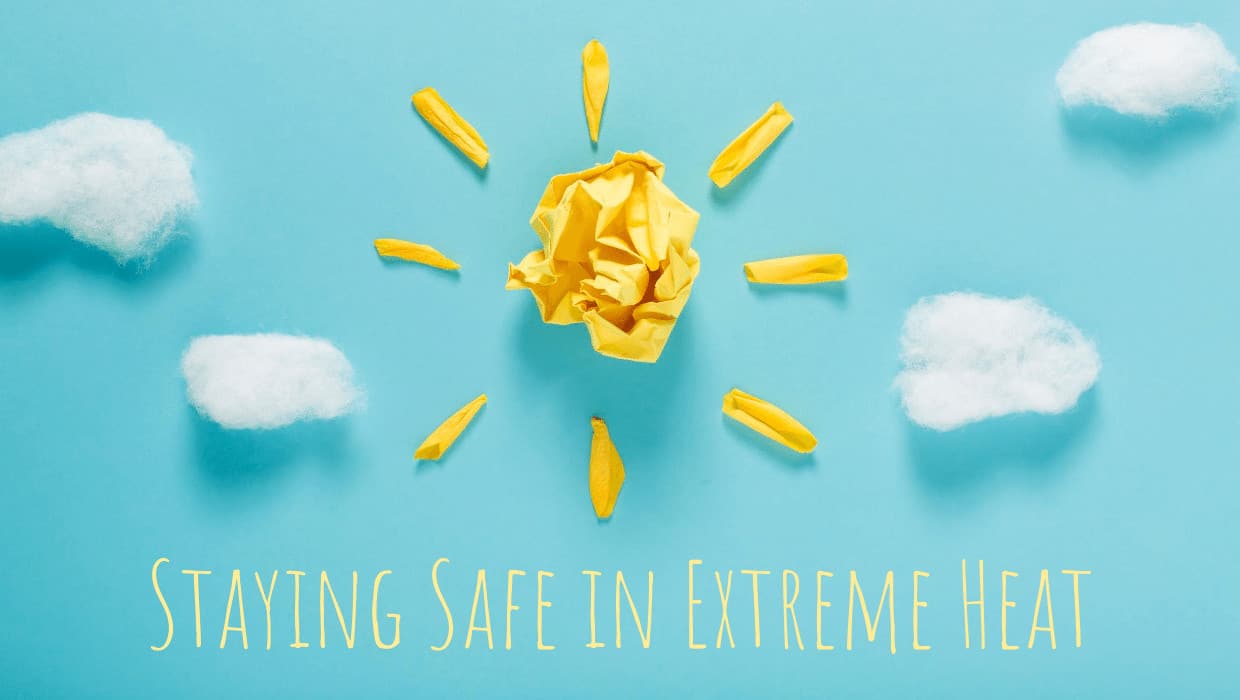- Finding the Right Indoor Plants for Desert Your Home - April 28, 2023
- Common Misunderstanding About Sun Exposure - April 18, 2023
- All about the Arizona Monsoon Season - May 21, 2021
Wow, it has been hot! Arizona summers always kick the thermometer up a notch, and this year is no exception. For better or worse, Phoenix and its surrounding area have to adapt to waves of extreme heat and it is important to understand basic heat safety to avoid serious health consequences when it gets super hot outside.
Extreme heat causes over 700 deaths in the US annually and the Phoenix area is often responsible for over 100 of those cases. It’s hot here, and not taking care of yourself in the heat can have dire consequences.
How Heat Kills
Why can extreme heat turn deadly? Normal, healthy human body temperature hovers between 96.8°F and 98.6°F, the ideal temperature for our body to function in. When our body is heated above this range, it spends a good deal of energy trying to cool itself down. Sweat is a major biological tool for this. When we sweat, the perspiration evaporates on our skin and clothing, cooling us down.
Sweat is an effective tool for how the body regulates heat, but it isn’t foolproof. When the outside temperature exceeds our body temperature, shedding heat becomes more of a challenge and it can take more energy and resources to do so. If our body’s systems for regulating heat are compromised, we can face heat exhaustion marked by dizziness, nausea and fatigue. Without proper cooling, heat exhaustion can rapidly become heat stroke where the body’s temperature climbs without being checked and they can experience seizures, states of coma, or even death.
Needless to say, maintaining our body temperature is critical for living in a region of the country that experiences extreme heat.
Who Is Vulnerable?
Heat exhaustion and heat stroke can happen to anyone who isn’t careful in an extreme heat setting, but some parts of the population need to be especially cautious. Heat-related health issues most affect seniors and the very young. Over age 65, humans gradually lose some of their sweat gland function, which can make it harder for the body to cool itself as we age. Very young children suffer in heat because their bodies are still learning how to regulate temperature and may have trouble adapting to heat extremes.
Other factors may also play a role. People with larger body mass, heart disease and poor circulation may all have greater trouble regulating body temperature. Similarly, the use of certain medications, or the presence of mental health issues may make heat regulation more of a problem.
Even if you aren’t in a vulnerable population, taking care of yourself in extreme heat is important. Outdoor activities that don’t seem strenuous on temperate days can quickly become dangerous in extreme heat.
Tips For Staying Safe
Stay Hydrated: Your body needs water to create the sweat it uses to cool you down. Drink water consistently throughout the day in extreme heat. Drink water even if you don’t specifically feel thirsty. Drinking electrolyte water – water mixed with lemon juice, sugar and salt- can also help your body stay hydrated. Dehydration fast tracks your path to heat exhaustion.
Use Air Conditioning: It is important to have a cooled, shaded spot to base yourself in while extreme heat is occuring. Do not solely rely on fans to stave off extreme heat indoors. Spend peak daylight hours out of the heat, in air conditioning. If home air conditioning is not an option, use air conditioning in a vehicle or contact your town to find public facilities for avoiding extreme heat.
Shift Your Schedule: For workers, athletes and others used to an active lifestyle, extreme heat is best handled by shifting your activity schedule to avoid exertion when heat sets in. This means saving the most strenuous activities you do for sunrise and sunset, when daytime heat subsides. Additionally, it’s important to slow down your activities to conserve energy.
Dress Smart: Wearing loose-fitting and light-colored garments reflects sunlight instead of absorbing its heat. Opt for lightweight natural fiber textiles when possible for their increased breathability.
Avoid Cooking Inside: Don’t heat up your home further in a heat wave by using the stove or oven. When extreme heat hits, rely mostly on cold foods and beverages or make use of an outdoor grill or indoor microwave for food preparation.
CC Sunscreens
Don’t let the heat deter you from a backyard hang! For an enjoyable time in your backyard, consider patio sunscreens from CC Sunscreens. Custom patio screens make your outdoor hangs comfortable by keeping out heat and harmful UV rays. Call us at CC Sunscreens today to learn more about our patio screens.

